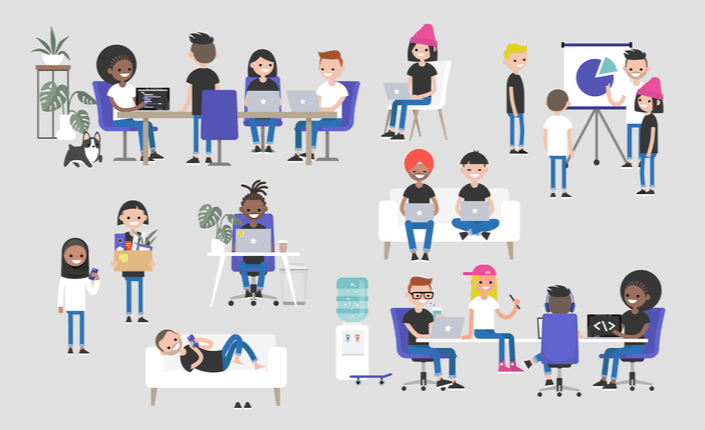
This article was written and published in Spanish and has been translated into English via Google Translate. Click here to read the original article.
This is foreseen by experts in Human Resources, who, in addition to warning about this transformation of the world of work, place a special focus on the expectations of new generations of professionals, especially those of millennials.
This generation, the millennials, is currently the new internal customer that every organization should consider when planning their HR strategies.
According to the study Organizational culture as an experience, prepared by Findasense, a marketing experience, innovation and digital transformation consultant, a new generation of workers is taking command of the labor market, millennials, professionals between 20 and 38 years of age who represent a significant part of the workforce, especially in sectors linked to technology and the digital universe.
José Ramón López Grañeda, global company lead, innovation leader of Findasense, explains:
“Unlike previous generations, millennials are pessimistic about the prospects for economic growth and political changes. Their global priorities are focused on traveling, knowing the world, accessing a home, generating a positive impact on society and having children.”
The study shows that these professionals are willing to revolutionize the way of understanding business and work, mainly because they think that companies and their leaders should take their social impact more into account instead of focusing solely on their own profitability.
“We are facing a paradigm shift that focuses more on living the organizational culture as an experience,” says Laura Di Prisco, global culture & people happiness lead, innovation leader of Findasense Global. The study highlights that it is now millennials who are accelerating the change in Human Resources strategies.
What characteristics should organizations have to strengthen the link with millennial workers?
“Young professionals, demanding with brands, with political leaders, with their expectation for free time, are also looking for a place to identify in their work and transform that journey into an experience,” says López Grañeda.
In this scenario, the Findasense study indicates that in order to change the organizational culture and provide experiences to the internal customer, companies must take into account the following keys:
Within the current volatility and uncertainty environments, organizations must adapt to various changes, among them, to offer a space with characteristics that allow a solid link and enhance the best version of each member, beyond their time of permanence .
“Putting the focus on providing excellent experiences allows us to take advantage of market opportunities and differentiate ourselves from competitors,” concludes López Grañeda.
This article was written and published in Spanish and has been translated into English via Google Translate. Click here to read the original article.
Join us February 26-27 for the Property Portal Watch Conference Bangkok 2020.
